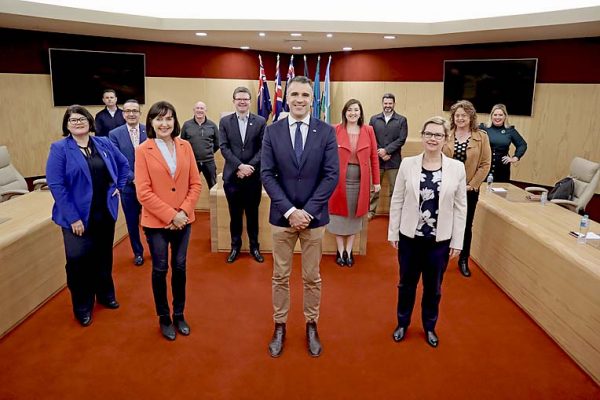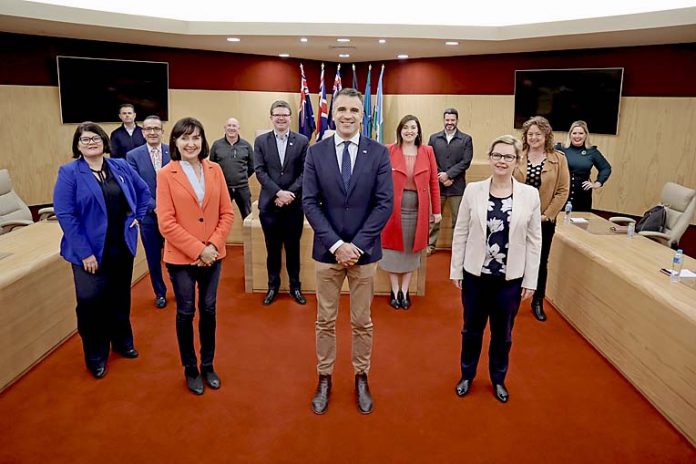
STATE Opposition leader Peter Malinauskas verbally acknowledged the former Labor Government’s controversial sale of the forward timber rotations as a mistake to a smattering of applause at Sunday night’s shadow cabinet community forum.
The South Australian Labor leader told the 80-strong crowd the previous administration “got it wrong” with the privatisation of the forests, seven years after the harvesting rights were sold.
In response to a question on the party’s policy of the role of water in regional communities, Mr Malinauskas said water underpinned a number of industries, including forestry and said the party would be informed by science about the equitable distribution of the resource.
Mr Malinauskas praised the forestry industry as a significant contributor to the economy, adding it was a sector he believed in its capacity to grow.
He referred to previous comments about the “regrettable” sale of the forests, which the leader said did not have the backing of the community.
“I have been on the record publicly acknowledging that we got it wrong in government with the privatisation of the forests,” he said.
“Some of my predecessors might not have been rapt that I went on the record and said that, but I meant it.
“I copped a bit of criticism for it back home.
“Labor for 16 years was a good government … I think we did a lot of good things, but we cannot be proud of what we did right if we are not honest about what we did wrong.
“I think we got that one wrong.”
The Blue Lake city was the site of the state opposition’s first shadow country cabinet since the COVID19 pandemic was declared, aimed at collating information to develop policies ahead of the 2022 South Australian election.
Mr Malinauskas was joined by 13 members of Labor’s shadow cabinet at the forum, fielding questions from the floor about the potential for hydrogen as an energy source, providing subsidies for businesses to convert to renewable energy sources and fracking.
The leader said South Australia was well poised to capitalise on hydrogen energy and said government policy should focus on developing the technology.
Mr Malinauskas raised concerns about the South Australia-New South Wales interconnector and the effect it would have on the viability of hydrogen.
“What the interconnector will do is connect us up to NSW where they still have a very substantial volume of coal fired power,” he said.
“The government’s stated objective is to have renewable energy go from SA to NSW when we have an excess supply of renewable energy.
“When we do not have the renewable power, we are going to import power from NSW, which is likely coming from coal fired power stations.
“What you should be contemplating is how we can use that additional power when we have got it to see it develop infrastructure and jobs and to see it provide a mechanism for hydrogen to become a viable source of power.”
Addressing a question on whether the Labor Party would repeal the 10-year moratorium on fracking in the Limestone Coast if elected in 2022, Mr Malinauskas simply said “we do not have a policy to overturn the ban”.
Limestone Coast Protection Alliance committee member Merilyn Paxton queried the possibility of providing businesses with subsidies to transition to renewable energy.
Mr Malinauskas supported a market-based regulation of emissions, saying it would provide industries with the ability to achieve lower emissions without compromising their business.
He labelled the Federal Government’s inaction on regulating emissions as policy paralysis and said both national Liberal and Labor governments had failed to implement a scheme.
“I do not just blame the Liberal Party, I also blame Kevin Rudd,” he said.
“He should have pursued the emissions trading scheme with a double dissolution election back in 2007 – he would have won that election and we would have had that policy in place and Australia would be better for it.
“What we are preparing to do when it comes to the energy specifically is to have a robust policy we are able to deliver that achieves the dual objective of trying to drive down emissions in this state and place us in the best possible position in terms of capitalising the opportunity of green industry.
“It is a complex piece of policy work and we are undertaking it as we speak.”








